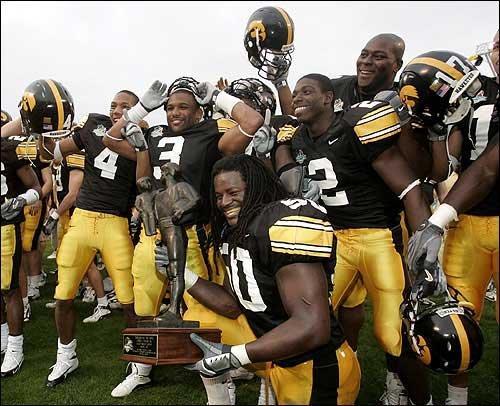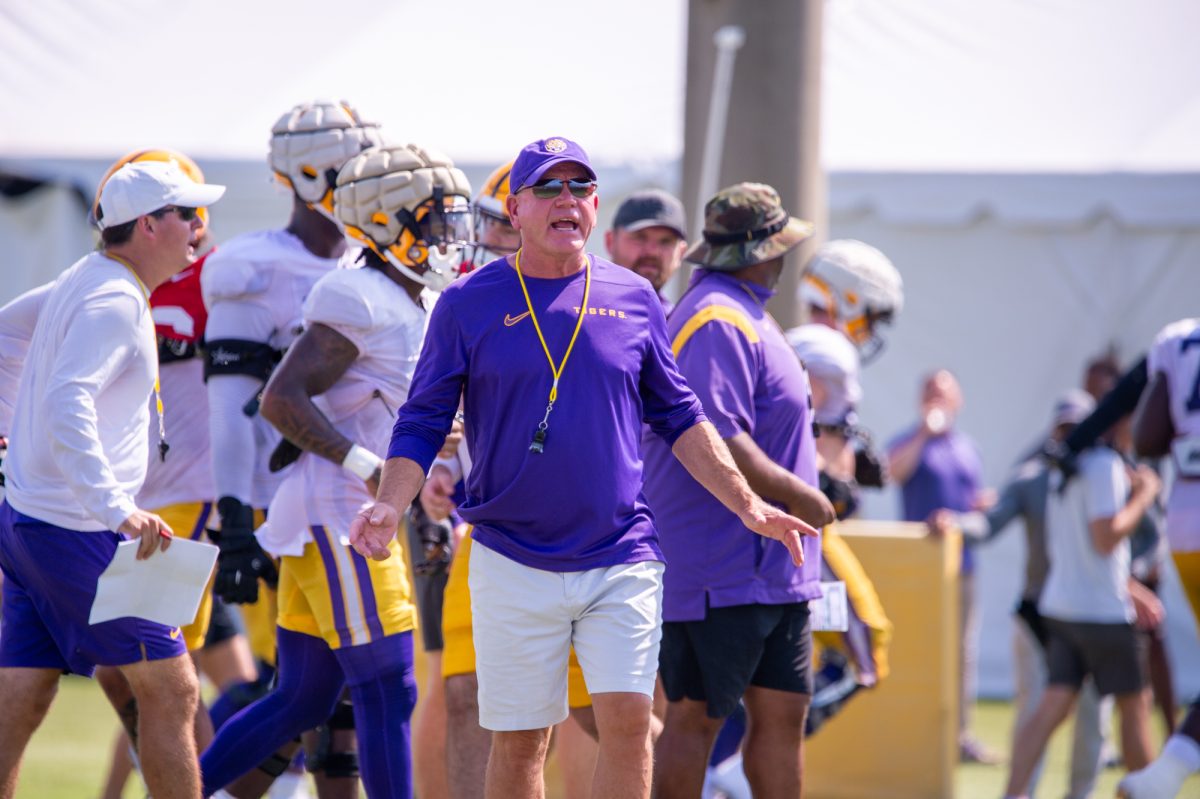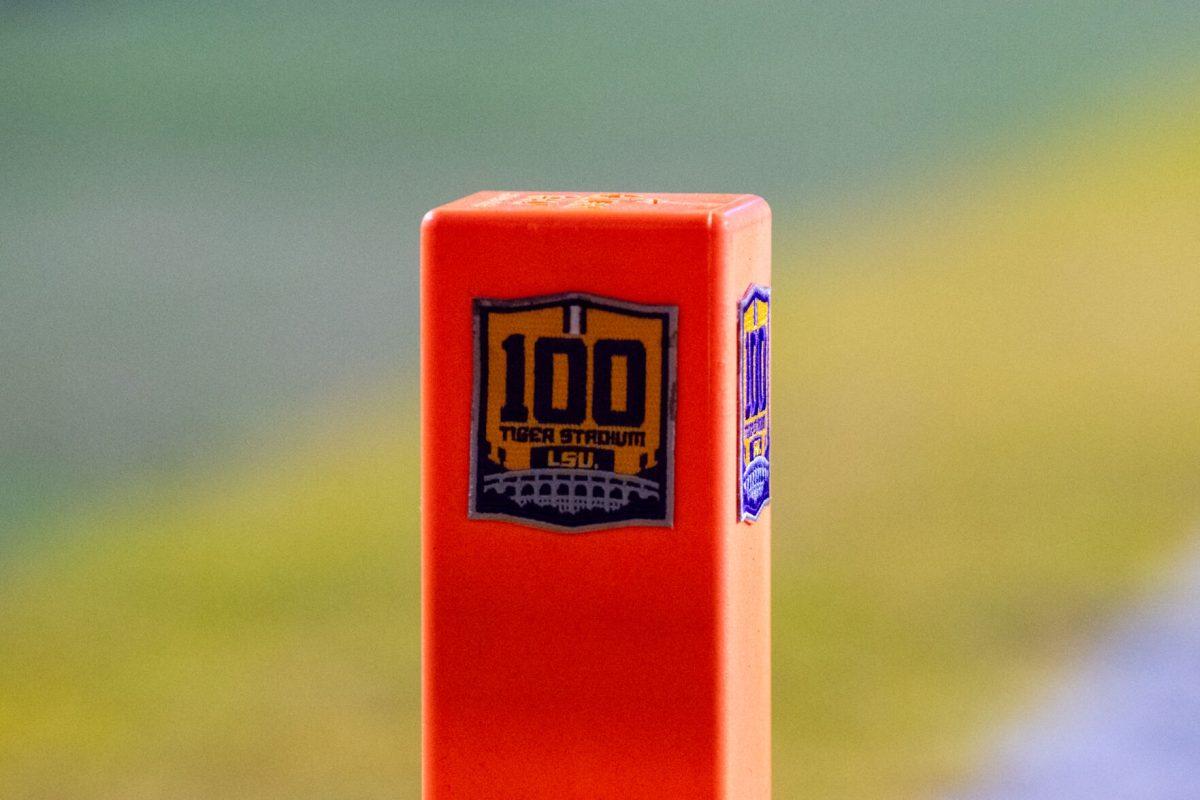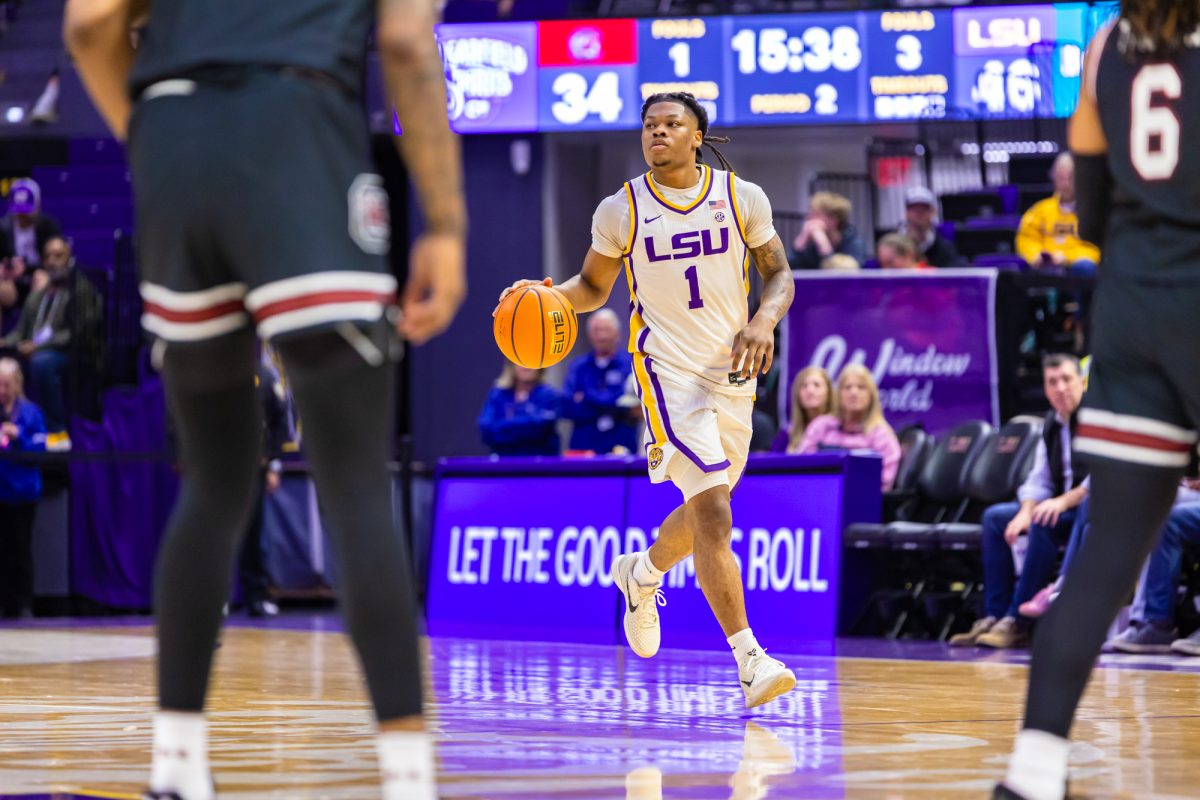Nearly nine years ago, I sat cross-legged on my grandparents’ living room floor, eyes glued to the wide-screen television as the final seconds melted off the clock.
LSU was one play away from wrapping up another 10-win season with a Capital One Bowl victory against Iowa. Trailing 25-24, and about 60 yards from the end zone, all the Hawkeyes could do was chuck up a prayer.
Iowa neglected its two remaining timeouts, and quarterback Drew Tate called for the snap with about eight seconds remaining. In the least dramatic Hail Mary ever executed, Tate heaved the pigskin before any of his receivers were anywhere near the end zone.
But one blown coverage later, Iowa receiver Warren Holloway crossed the goal line, football in hand.
The cloud hanging over the room burst into a profanity storm that nearly made my grandmother faint. Collectively, my family quickly progressed from denial to anger but never came close to acceptance.
While I subconsciously added some colorful phrases to my adolescent vocabulary, my mind searched for some kind of excuse or explanation. A Hawkeye had to be holding. There just had to be a flag somewhere.
But the only yellow on the Citrus Bowl turf came in streaks, as the jubilant Iowa bench rushed to dog-pile Holloway in the back of the end zone. A few Hawkeyes joined Tate as he ripped off his helmet and sprinted after his receiver.
And that’s when the feeling of emptiness set in. I had never witnessed something so final yet open-ended, and the trophy presentation did little in terms of closure. I knew the sickening taste of that loss would linger until the following fall, and there was nothing I could do about it.
Looking back now, I acknowledge the exaggeration produced by the psyche of an 11-year-old football fan. But that image is one of my most vivid childhood memories – a team only one year removed from a national championship asking its defense how and why.
The 2013 Tigers strike a similar pose. Though LSU’s last national title is fading in the rear-view mirror, the immediate past is rife with aspirations and forever stained by a miserable performance in the 2012 championship game.
Except for its domination of Texas A&M and Johnny Manziel, the Tigers’ defense has been suspect all year. Whether it was getting mercilessly trampled by Georgia and Alabama or surrendering 27 points to Ole Miss’ backups, the contemporary LSU defense bore little resemblance to its vaunted predecessors.
But a showdown with Iowa in the Outback Bowl can momentarily erase those awful memories still plaguing Tiger fans. On New Year’s Day, this much-maligned defense will have one more chance to redeem itself and rekindle hope for seasons to come.
More importantly, LSU can introduce a habit of finishing strong.
The Tigers are 2-3 in bowl games since capturing the 2007 national title, and their fan base has grown largely disinterested in any postseason contest without championship implications. Even so, many die-hard LSU fans turned off their televisions and sought a distraction when the Crimson Tide exacted their revenge and hoisted the trophy two years ago.
There are those still trying to forget the Tigers’ offensive ineptitude and last-minute defensive collapse against Clemson in the Chick-fil-A Bowl last season. From the perspective of a football fan with no interest in the teams competing, those last two games were incredibly difficult to watch.
LSU’s lackadaisical postseason play has disenchanted supporters, and a repeat performance would only strengthen the apathy with which its followers regard bowl season.
In recent seasons, the Tigers have fallen victim to the most deadly football sin – sloth. They repeatedly play to their level of competition and pack it in once their shot at a championship is removed, and I needn’t point any further than the nail-biter in the season finale against three-win Arkansas to prove that point.
LSU should not take Iowa lightly, but experience tells me it will. The Hawkeyes are an eight-win team from a power conference, and its four losses came against teams that were ranked at the end of the regular season.
They evoke the same hunger and daring displayed by Clemson last year. Iowa is another program striving to return to prominence that finally has a chance to test its mettle against a supposedly superior Southeastern Conference school.
Common sense suggests that the Hawkeyes have more to prove come Wednesday afternoon, but my proximity to the Tigers’ program dictates otherwise.
LSU is at a critical crossroad as it enters 2014. Freshman quarterback Anthony Jennings will record his first start in place of injured veteran Zach Mettenberger, and the Outback Bowl may be the last game for several key players expected to make a premature departure for the NFL Draft.
On the first day of 2014, the Tigers can set the tone for the rest of the calendar year. LSU will sport many fresh faces next fall, and it needs a reminder of how to play in the fashion fans and critics alike have come to expect.
Moreover, the Outback Bowl is the final chance for the Tigers to convincingly punctuate their up-and-down season. While fans bid farewell to one of the best offenses in program history, the defense can pull its own weight and leave an impression contrary to past performances.
Will the Tigers cast away their ghosts of bowl seasons past? Can they usher in an offseason of hope rather than another one marked by uncertainty and sullied by a lazy bowl performance? Will 2014 begin for LSU as 2005 did?
I’ll be awaiting the answers to those questions from that same living room floor, surrounded by the same people so quickly given to outrage nine years ago. But should round two between LSU and Iowa yield a result similar to the first, I don’t predict my relatives will be in the same state of emotional turmoil.
They’re used to it by now.
Opinion: Tigers can learn valuable lessons from bowl seasons past
December 30, 2013

Iowa’s George Lewis holds the Capital One Bowl trophy while celebrating with teammates. The 11th-ranked Hawkeyes scored on the last play of the game to defeat No. 12 LSU, 30-25, Saturday in Orlando, Fla.
More to Discover









